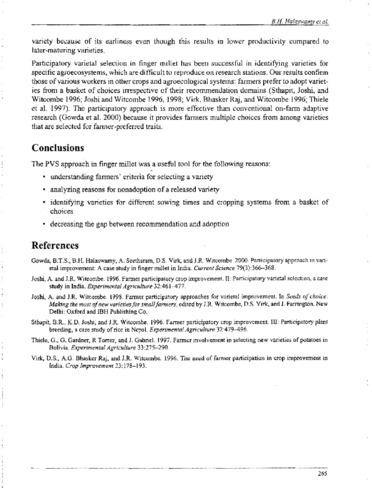Organizacion de agricultores en proyectos de yuca
The way farmers have organized themselves in the integrated cassava projects is described in detail. Types of farmer groups that process cassava are as follows: local groups, the most common; 2nd-order aggregations of local groups; third-order groups, federations, and congresses; large cooperatives; public facilities at the village level; farmer processors -- the coffee model; entrepeneurs (artisan starch producers, companies, associations of large farmers, processor-consumer farmers); government owner- operators (institutional owners and state farms); and other organizations (matrix organizations, organizations created for other purposes, social networks among farmers, processor-provider networks, traditional sociocultural forms of organization). A typology of farmer organizations is presented according to their structure and activities undertaken. Central activities are the production of fresh roots, processing, marketing, transport, and utilization. Support activities are credit, bulk purchase of inputs, production of planting material and machinery loans. Internal aspects of the organization are administration, accounting, distribution of benefits, goals, norms and values, and social and ceremonial events. Training and extension activities are also carried out with emphasis on farmer-to-farmer technology transfer. The organization's linkages with external institutions are discussed and guidelines are presented for planning farmer organizational development. The importance of organizational success in the feasibility of integrated cassava projects is stressed. (CIAT)

